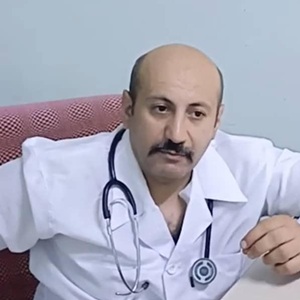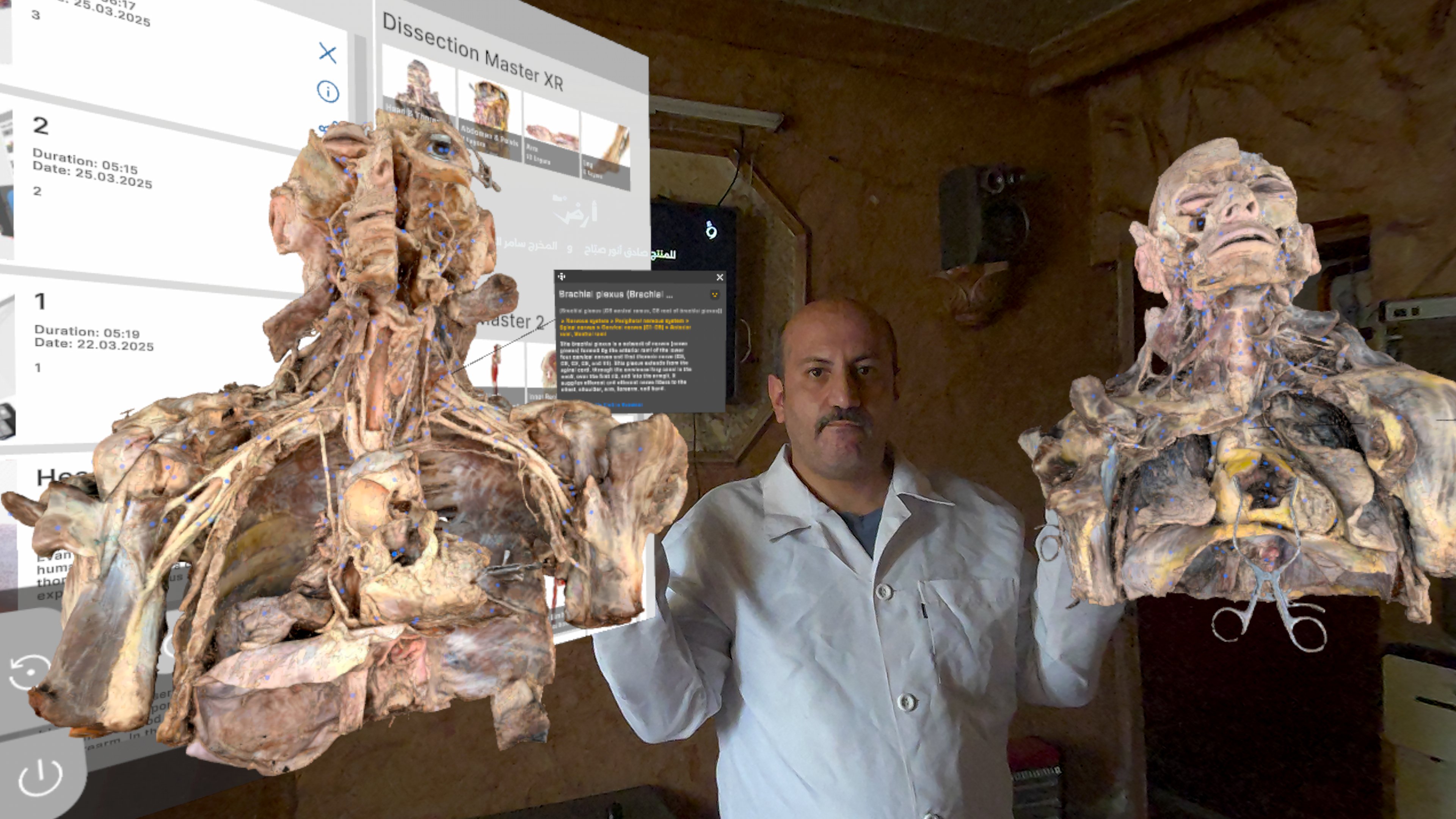In regions affected by conflict, medical teams face extraordinary challenges: lack of imaging tools, scarce medical resources, and limited access to specialist support. In such settings, every decision carries immense weight. For neurologists and neurosurgeons, where surgical precision is critical, traditional resources often fall short.
A Critical Case: Astrocytoma Surgery with VR
One of the most striking cases presented involved a 30-year-old patient with persistent neurological symptoms. Imaging revealed a grade 3 astrocytoma in the temporal lobe—requiring complex surgery with limited local support.
Using Medicalholodeck’s VR platform, Dr. Alhamood and his team reconstructed the tumor in an interactive 3D environment. This allowed them to:
-
Accurately visualize the tumor from multiple angles
-
Simulate surgical steps and potential complications
-
Share the XR model remotely with international neurosurgeons for consultation
The outcome was a safer, more informed surgery—and the case was later published in the Journal of Medical Case Reports (2024), highlighting the clinical value of immersive imaging in neurosurgical planning.

Dr. Mohammed Alhamood, MD is a neurologist at Tishreen Hospital in Damascus, Syria, where he provides specialized care in one of the most challenging medical environments in the world. Practicing in a conflict-affected region, Dr. Alhamood is committed to advancing neurological diagnosis, treatment, and surgical planning despite limited access to traditional resources.
He is a leading advocate for the use of virtual reality (VR) and extended reality (XR) technologies in conflict medicine. By integrating immersive tools into clinical workflows, Dr. Alhamood has improved patient outcomes and pioneered remote collaboration with international specialists.
Training Local Doctors in Immersive Environments
Beyond individual cases, Dr. Alhamood emphasized the broader educational impact of XR technologies in Syria. With limited access to cadavers and traditional models, VR has become a practical tool for immersive, hands-on training. Local physicians are now able to practice complex neurology and neurosurgery procedures virtually—bridging the gap between theory and real-world execution.
He acknowledged the critical support of the Medicalholodeck team, who provided full access to their software free of charge. In his words, “This is not just about technology—it’s about equity, access, and saving lives.”

Real-World Results
The integration of VR and XR in conflict medicine has already produced measurable results:
-
Enhanced diagnostic accuracy using immersive 3D imaging
-
Improved surgical planning and precision, leading to better outcomes
-
Scalable training solutions that work even in resource-limited hospitals
This approach is not hypothetical—it is in use today, transforming care for patients in war-affected regions.
A Call for Global Access
Dr. Alhamood concluded with a powerful message: access to advanced medical technology should not be defined by geography or economy. VR and XR are not futuristic—they are real tools solving real problems today.
His message is clear: immersive technology is not only changing the future of medicine—it’s changing lives right now.
For more information, contact info@medicalholodeck.com March 2025